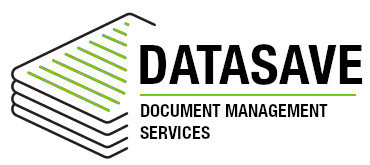In England, many companies still rely heavily on paper-based processes, despite the availability of digital solutions. These companies often have large volumes of paperwork that could be more efficiently managed and secured through digitalisation. The most paper-heavy industries tend to be those dealing with complex compliance, regulation, legal documentation, or sensitive customer information. Here’s a breakdown of some of the industries and companies that could benefit significantly from transitioning to digital document management with Datasave’s document scanning services:
1. Legal Services (Law Firms)
- Paperwork: Legal documents, case files, contracts, client information, and court filings.
- Why They Need Digitalisation: Law firms manage vast amounts of paperwork, including legal contracts, case files, and client correspondence. Digitising these documents makes them easier to store, search, and share securely. Additionally, transitioning to digital workflows can improve collaboration and compliance, particularly with regulations like GDPR.
2. Financial Services
- Paperwork: Client onboarding documents, investment records, regulatory filings, insurance claims, and bank statements.
- Why They Need Digitalisation: The financial sector handles a large volume of sensitive documents that need to be archived for compliance reasons (e.g., Anti-Money Laundering or AML). Digital solutions like e-signatures, secure document storage, and automated compliance tracking can reduce the need for paper-based records while improving security and accessibility.
3. Healthcare
- Paperwork: Patient records, medical histories, prescription forms, consent forms, and billing documentation.
- Why They Need Digitalization: The healthcare sector is notorious for being paper-heavy. Digitising patient records (EHRs – Electronic Health Records), prescriptions, and billing processes can improve patient care, reduce human error, enhance security, and ensure better compliance with privacy regulations (like the Data Protection Act 2018).
4. Construction & Property
- Paperwork: Contracts, project plans, permits, building regulations, safety reports, and supplier invoices.
- Why They Need Digitalisation: The construction industry often deals with large volumes of paperwork throughout the lifecycle of a project, including design documents, contracts, regulatory compliance forms, and safety inspection reports. Using digital project management tools, document management platforms, and digital signatures can streamline operations and improve efficiency, especially with large teams and remote workers.
5. Education
- Paperwork: Student records, administrative forms, course materials, and certificates.
- Why They Need Digitalisation: Education institutions manage a huge amount of paper, from student admissions and exam papers to academic records and attendance. Digital platforms can streamline admissions, record-keeping, and certification processes, improving access for students, teachers, and administrators, while reducing administrative overhead.
6. Public Sector & Government
- Paperwork: Official forms, policy documents, correspondence, records of transactions, and permits/licenses.
- Why They Need Digitalisation: Government agencies process vast amounts of paperwork related to public services, benefits, taxation, and regulations. Digital solutions can help streamline processes, improve service delivery, and increase transparency, while reducing administrative costs and inefficiencies.
7. Real Estate & Property Management
- Paperwork: Lease agreements, contracts, tenant applications, inspection reports, and legal documents.
- Why They Need Digitalisation: The real estate sector generates a lot of paperwork for property sales, leases, and tenancy agreements. Moving to digital contract management, e-signatures, and cloud-based property management systems can simplify administration, improve tenant experiences, and streamline legal processes.
8. Manufacturing & Supply Chain
- Paperwork: Orders, invoices, inventory records, shipment tracking, compliance documents, and contracts.
- Why They Need Digitalisation: Manufacturing and logistics companies rely on large volumes of paper to track shipments, manage inventory, and handle procurement. Moving to digital inventory management, electronic invoicing, and automated supply chain management systems can significantly reduce paperwork and increase operational efficiency.
9. Retail and Wholesale
- Paperwork: Supplier contracts, invoices, inventory reports, purchase orders, and receipts.
- Why They Need Digitalisation: The retail sector, especially large retailers, manages a high volume of paperwork related to supplier agreements, inventory tracking, and sales reports. Moving to a fully digitalized system can automate many of these processes, leading to faster transactions and improved data accuracy.
10. Insurance
- Paperwork: Policy documents, claims forms, underwriting records, and customer communications.
- Why They Need Digitalisation: Insurance companies deal with substantial volumes of paperwork related to customer claims, policies, and regulatory compliance. Digital solutions like document management systems and claims automation can help improve efficiency, reduce processing time, and enhance customer experience.
11. Hospitality & Leisure
- Paperwork: Booking forms, customer feedback, invoices, contracts, and HR documentation.
- Why They Need Digitalisation: The hospitality industry often relies on paper for customer check-ins, reservation systems, and HR management. Digitalisation in these areas can improve guest experiences, streamline reservations, and automate HR processes like scheduling and payroll.
12. Charities & Non-Profit Organizations
- Paperwork: Donation forms, grant applications, compliance reports, and volunteer records.
- Why They Need Digitalisation: Non-profits manage significant amounts of paperwork related to donations, compliance with regulations, and volunteer records. By digitalising these processes, charities can reduce administrative costs, improve reporting, and ensure data security for sensitive donor information.
Many sectors in the UK have significant amounts of paperwork that could be digitalized for greater efficiency, security, and compliance. Law firms, financial services, healthcare, and public sector organisations stand out as particularly paper-heavy industries that could benefit from digital transformation.
